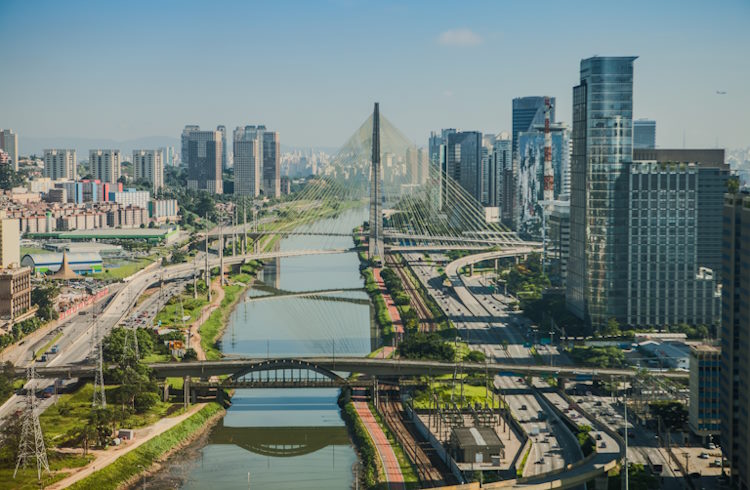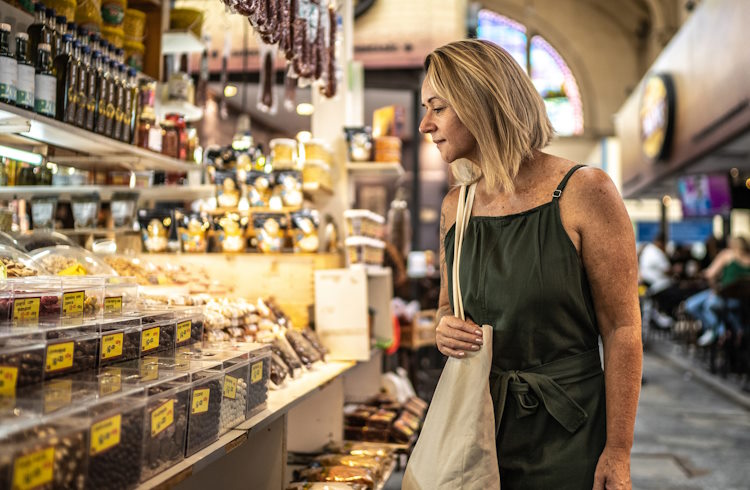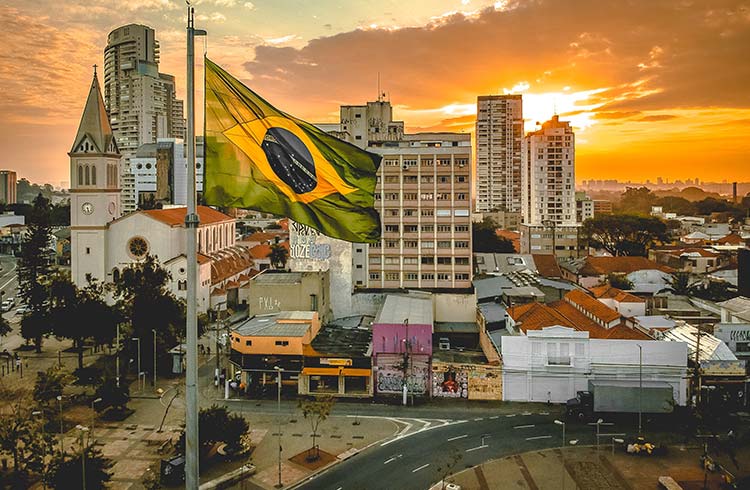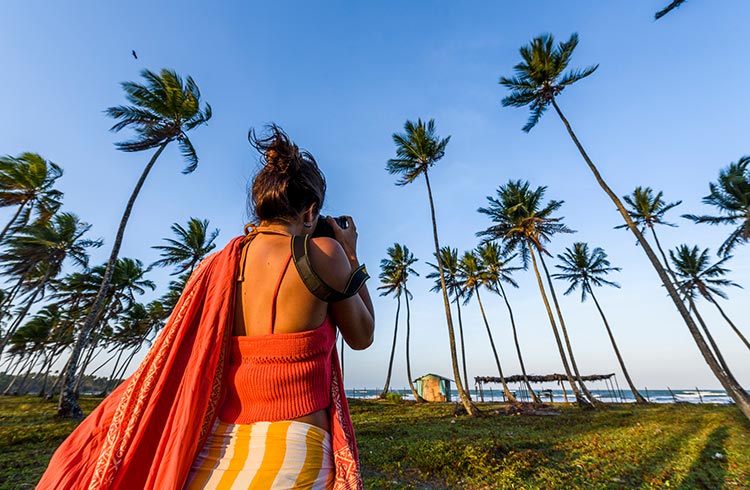Is São Paulo Safe for Travelers?
Don’t let São Paulo’s size and reputation deter you from visiting the city. Here's how to stay safe and alert while discovering one of Brazil's most exciting destinations.
 Photo © Getty Images / StockLapse
Photo © Getty Images / StockLapse
São Paulo is a vibrant, modern city filled with culture and excitement, but safety is a valid concern for travelers. Here's an overview of the current safety landscape, crime statistics, and transportation options for visitors in 2024.
- Crime in São Paulo
- Safety tips for avoiding theft
- Neighborhoods to avoid in São Paulo
- Best São Paulo neighborhoods for visitors
- Public transport safety in São Paulo
- Women's safety in São Paulo
Crime in São Paulo
São Paulo is Brazil’s largest city and one of the biggest in the world. Like most sizeable cities, crime is a problem in some areas. But São Paulo’s reputation for danger is somewhat exaggerated, and it has been getting progressively safer – in 2024, São Paulo saw its lowest homicide rate in 24 years. It’s considered less dangerous than other major Brazilian cities such as Rio de Janiero, Salvador, or Recife.
For visitors, petty crime is a much bigger concern than violent crime. The most common crimes in 2023 were robbery and theft (such as pickpocketing). Theft showed a slight increase from 2022, while robbery (which involves violence or the threat of violence) dropped. Vehicle thievery and robbery are also high on the list, though not as frequent.
But São Paulo is generally considered safe for visitors if they stay alert, take basic precautions, and avoid neighborhoods known for high crime.
Emergency numbers:
- Police: 190
- Medical Emergencies: 192
- Fire Department: 193
- Women's Emergency Line: 180
Safety tips for avoiding theft
Travelers should always keep personal belongings secure. Carry your items in a closed purse at the front of your body or in a front pocket to deter pickpockets, especially in crowded areas like downtown, Paulista Avenue, and Vila Madalena. Avoid displaying valuables like cell phones and cash, as this can attract thieves.
Neighborhoods to avoid in São Paulo
Crime in São Paulo is very localized – some districts are quite safe, and some are quite dangerous. Here are some areas you should steer clear of.
- Historic center: The Sé neighborhood, which houses notable landmarks and museums, is popular with visitors (and with petty criminals). If you do visit, consider wearing a money belt and hiring a guide, and don’t walk alone at night. Also use caution in the city center neighborhoods of Luz, Santa Efigênia, and Consolação.
- Outskirts: As in many large cities, poorer areas such as Capão Redondo, Vila Clementino, and Campo Limpo often have high levels of crime. Places far from the city center, like Pari, Perdizes, and Lapa, should also be avoided.
Planning a trip to Brazil? Find out how travel insurance can cover lost or stolen baggage, sudden illness, or other travel mishaps.
Best São Paulo neighborhoods for visitors
Some of the coolest neighborhoods in São Paulo are also among the safest. These include trendy Vila Madalena, diverse Pinheiros, Bela Vista (home to the Museum of Art of São Paulo Assis Chateaubriand), and upscale Jardins.

Public transport safety in São Paulo
São Paulo's transportation system is extensive and reasonably safe, but awareness is key. Theft on public transit is most common when vehicles are crowed, while robberies tend to happen on nearly empty buses and at night, when it’s easier for criminals to escape quickly. You should be especially vigilant at bus and metro stops late at night, as thieves often wait there for unwitting passengers.
- Metro: São Paulo's Metro system is well-organized, fast, and efficient. It runs daily from 5am to midnight (some lines operate until 1am on Saturdays). With six lines, it covers most of the city, but the Blue and Green lines are the most central. The Green line is considered the cleanest and safest. The Red Line is the most crowded. Be cautious on the Red and Blue lines, especially at stops like Carandiru, Parada Inglesa, Carrão, Sé, Barra Funda, Tatuapé, and República after dark.
- Buses: Operating all night with dedicated bus corridors, they can help you avoid traffic but it’s important to stay vigilant, especially late at night. Keep a close eye on your cell phone, particularly in the historic center, as thieves have been known to snatch phones through bus windows.
- Taxis: Instead of hailing a cab of the street, consider using ride-hailing apps like 99 and Cabify, especially for late-night travel.
- Uber: Uber is as safe to take in São Paulo as in most other large, modern cities and a good option for getting around. Check that the driver is verified and confirm the license plate before you enter.
Women's safety in São Paulo
Women can generally feel safe walking around the city, although caution is advised in less populated or poorly lit areas. Traveling in groups is recommended, and in case of an emergency, call the women's police unit at 180.
Related articles
Simple and flexible travel insurance
You can buy at home or while traveling, and claim online from anywhere in the world. With 150+ adventure activities covered and 24/7 emergency assistance.
Get a quote

8 Comments
Ask if the restaurant serves "agua da casa" for free water :)
Great article! Thank you for all the information shared here.
If you want a stress-free travel to São Paulo, The best bet option when it comes to transportation is to hire a private driver. But even though it's safer, it's important to choose a reliable company.
Perdizes is not far from the center. Nor is it particularly dangerous. Also most people in Sao Paulo do NOT own a car.
“Places far from the city center, like Pari, Perdizes and Lapa and most of the poorer neighborhoods, like Campo Limpo, Vila Clementino and Capão Redondo should be avoided because they can be dangerous.”
I wonder how well you know São Paulo lol. Perdizes and Vila Clementino are among the nicets neighborhoods in the city and they’re very safe for everyone. You mjst be crazy!
"...which reflects the poverty and disadvantage of where they come from": awful careless statement. Poverty does not equal crime. I agree they can be related, but you cannot use poverty and disadvantage as a sign of crime.
I agree with you but I don´t blame them. São Paulo can be unsafe if you don´t have the basic information (just ask for it) to walk throught the city and they have difficulties (and don´t want) to learn portuguese. We got more poverty that´s true but we know the large maiority is inoffensive.
The great opportunity to understand what I´m talking about Brazil is to come as soon as possible to see how great we are in terms of work, happiness, social responsability and globalization.
We´ll be glad to receive them with our know receptivity.
they will learn from all of its own roots and veggies that a new democracy. but we havd not as a whole lot of people who are 5